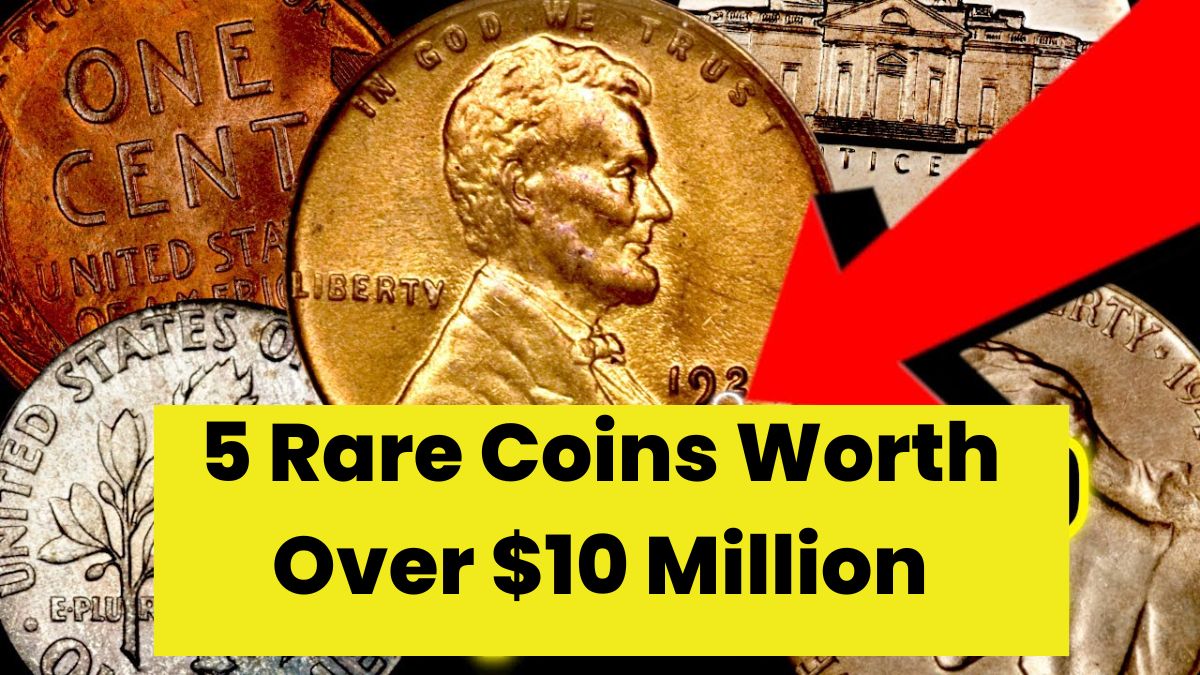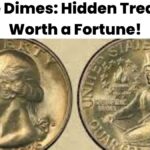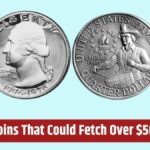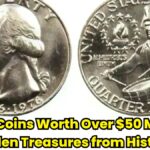5 Ultra-Rare Coins Valued Over $10 Million: In the fascinating world of numismatics, certain coins stand out not just for their age, but for their extraordinary stories and astronomical values. These precious pieces of metal, each worth over $10 million, represent more than just currency – they are windows into significant moments in history, showcasing remarkable craftsmanship and carrying intriguing tales of their survival through time.
Understanding the Value of Rare Coins
What transforms a simple piece of metal into a multi-million dollar treasure? The answer lies in a complex blend of factors. Historical significance, scarcity, preservation quality, and unique characteristics all play crucial roles in determining a coin’s value. Collectors and investors are drawn to these pieces not just for their monetary worth, but for their ability to connect us with pivotal moments in history.
The Crown Jewel
Perhaps the most captivating story belongs to the 1933 Double Eagle, which achieved a record-breaking sale of $18.9 million in 2021. This gold masterpiece was never meant to circulate, as President Franklin D. Roosevelt had ordered all gold coins to be melted during the Great Depression. Its survival against these odds, combined with its pristine condition, makes it the most valuable coin ever sold. The fact that it escaped destruction adds an element of intrigue to its already impressive historical significance.
America’s First
Representing a cornerstone of American numismatic history, the 1794 Flowing Hair Dollar holds special significance as the first silver dollar minted by the United States government. With Lady Liberty’s flowing hair on one side and an eagle on the reverse, this $10 million treasure tells the story of a young nation establishing its currency. Of the original 1,758 minted pieces, only a handful survive in collectable condition, making each existing piece extraordinarily valuable.
The Craftsman’s Pride
The Brasher Doubloon, valued at over $10 million, stands as a testament to early American craftsmanship. Created by New York goldsmith Ephraim Brasher, each coin bears his distinctive “EB” hallmark. This private mintage represents an era when skilled craftsmen could produce their own coins, a practice that would soon give way to centralized government minting. Its value continues to appreciate, driven by its unique history and exceptional craftsmanship.
The Diplomatic Token
Despite its date, the 1804 Silver Dollar has a fascinating twist – it wasn’t actually minted until the 1830s. Created specifically as diplomatic gifts, only eight Class I specimens exist today. This “King of Coins” commanded a price of $10.01 million in 2016, demonstrating how rarity and historical significance can combine to create extraordinary value. Each surviving piece represents not just American currency, but also early American diplomacy.
The Mystery Coin
Adding an element of mystery to our list is the 1913 Liberty Head Nickel. With only five known examples and no official record of its minting, this $10 million coin represents one of numismatics’ greatest enigmas. Its unauthorized production and subsequent discovery have created an aura of intrigue that continues to captivate collectors and historians alike.
Preserving History Through Coins
These multi-million dollar coins serve as more than just collectibles; they are preserved pieces of history that tell stories of economic changes, political decisions, and artistic achievement. Their value extends beyond their price tags, offering insights into the evolution of currency and the development of nations.
The world of rare coins demonstrates how historical significance, scarcity, and unique circumstances can transform small pieces of metal into priceless treasures. Each of these coins, whether shrouded in mystery like the 1913 Liberty Head Nickel or representing pivotal moments like the 1933 Double Eagle, contributes to our understanding of history while commanding remarkable prices in today’s market. For collectors and historians alike, these coins represent the perfect intersection of financial value and historical significance.




